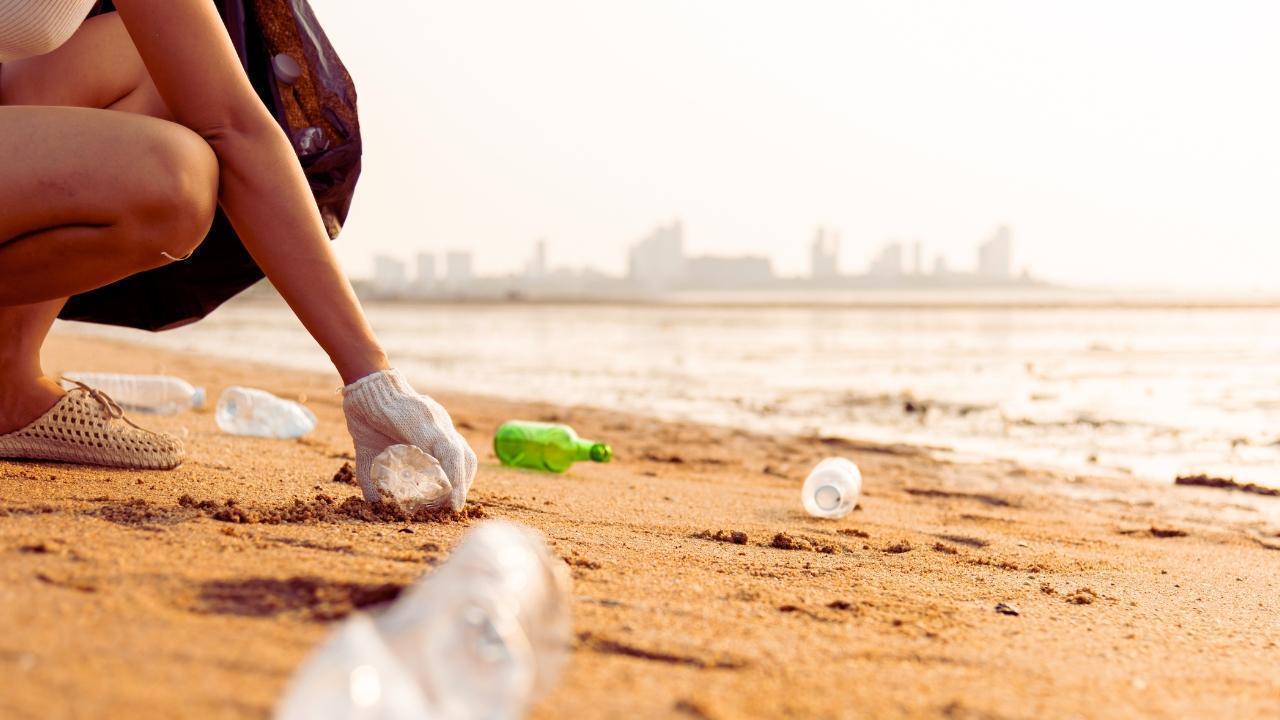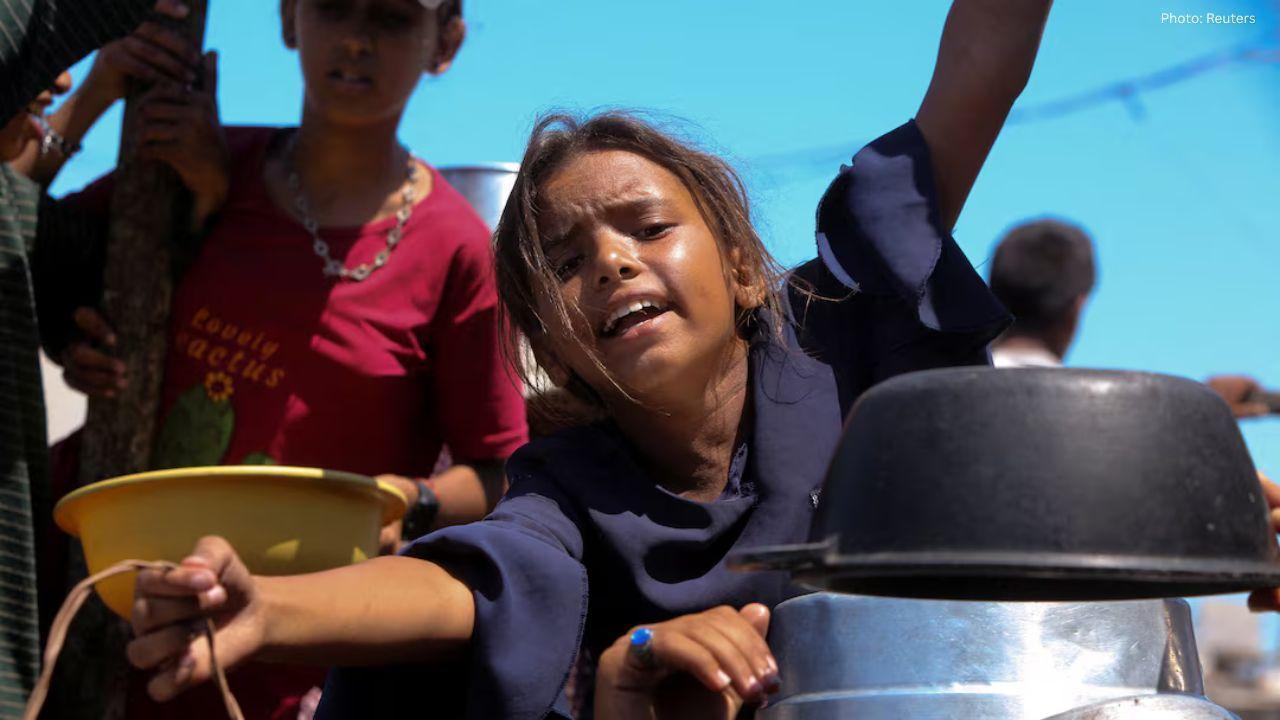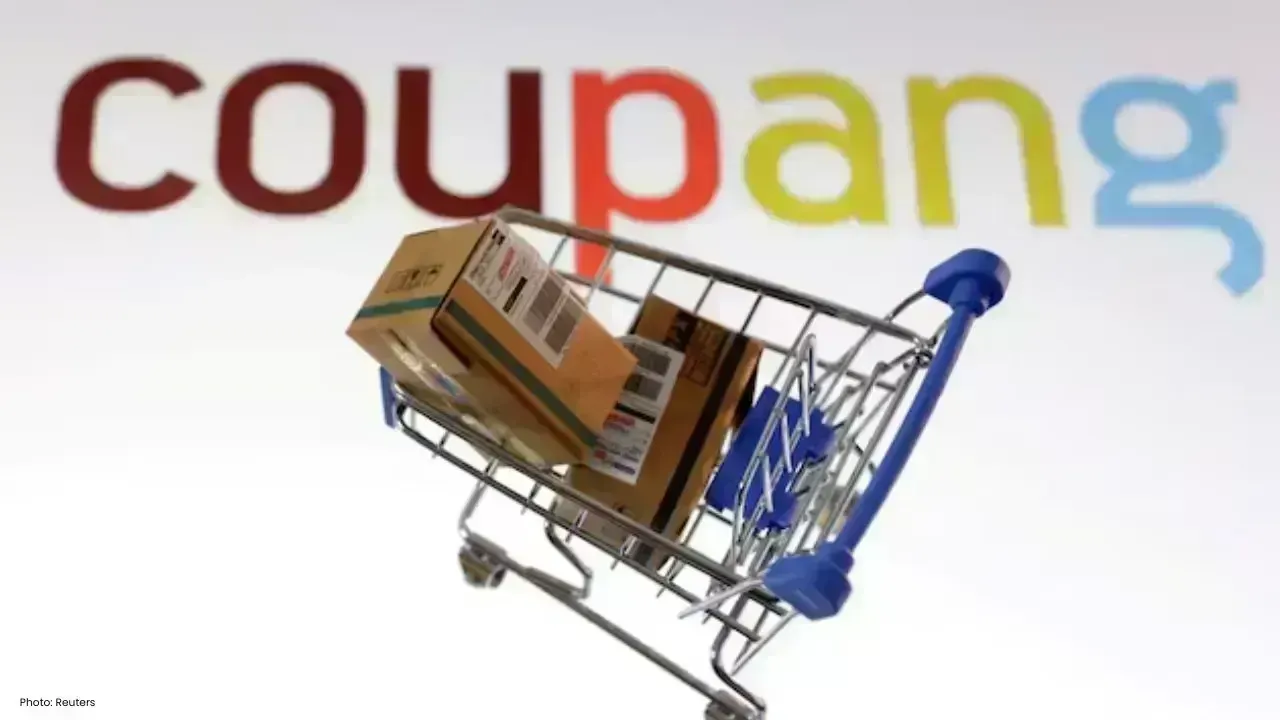You have not yet added any article to your bookmarks!

Join 10k+ people to get notified about new posts, news and tips.
Do not worry we don't spam!

Post by : Anis Farhan
In recent years, the urgency to address marine pollution has reached critical levels. With millions of tonnes of plastic and waste entering oceans every year, coastlines have become silent witnesses to humanity’s environmental neglect. However, the story is slowly changing. A new wave of ocean cleanup projects is emerging, led by environmental groups, innovators, and even small communities. These projects are not only cleaning up waste but also reshaping coastlines, restoring ecosystems, and giving coastal communities renewed hope for a cleaner, healthier future.
Marine pollution is not just an aesthetic issue—it’s an ecological crisis. According to the United Nations Environment Programme, approximately 11 million metric tonnes of plastic enter the ocean each year. This waste damages coral reefs, entangles marine life, and breaks down into microplastics that enter the food chain. For decades, the problem was seen as too vast to tackle, but technological advancements and collaborative projects have changed that perception. Countries, NGOs, and grassroots movements are now proving that clean oceans are not just a dream but an achievable goal.
One of the biggest shifts in recent years has been the role of advanced technology in cleaning oceans. Projects such as The Ocean Cleanup have deployed massive floating barriers that passively collect plastic waste from rivers and the ocean surface. These systems are designed to concentrate debris in one place, making it easier to remove. Similarly, solar-powered water skimmers, AI-powered waste detection drones, and biodegradable booms are being used to trap and collect floating waste before it reaches the open sea. Such technological interventions have accelerated cleanup operations that would have taken years if done manually.
While large-scale projects grab headlines, it’s often the local community initiatives that create lasting change. In the Philippines, fishing villages have organized “plastic banks,” where residents can exchange collected plastic waste for food or household items. In India’s Mumbai, the world’s largest beach cleanup was initiated by a single lawyer, Afroz Shah, and grew into a community movement that restored 2.5 kilometers of beach. These grassroots efforts show that when people have ownership of their coastline, they protect and nurture it more effectively.
Successful cleanup projects often rely on collaboration. Governments provide funding and infrastructure, while NGOs bring innovation, expertise, and volunteer networks. For example, Indonesia’s Ministry of Environment has partnered with multiple organizations to tackle waste at river mouths, preventing it from flowing into the ocean. In the United States, NOAA (National Oceanic and Atmospheric Administration) works with conservation groups to remove ghost fishing gear—abandoned nets and traps—that pose deadly risks to marine animals.
One challenge in large-scale cleanup projects is consistent funding. Many initiatives now use creative approaches such as eco-tourism, corporate sponsorships, and waste-to-product programs. Some companies transform collected ocean plastic into sunglasses, sneakers, and even car interiors, selling them as premium eco-friendly products. The proceeds help fund further cleanup work. This circular economy approach ensures that waste collected doesn’t just end up in landfills but gets repurposed into something valuable.
Ocean cleanup projects aren’t only about removing visible trash; they also aim to restore marine biodiversity. Coral transplantation, mangrove planting, and artificial reef creation are now integrated into many cleanup efforts. These restoration activities provide habitats for fish, protect shorelines from erosion, and help ecosystems recover faster. In Kenya, mangrove replanting along with waste removal has brought back fish populations, boosting the livelihoods of local fishermen.
Education is a powerful tool in ensuring the success of ocean cleanup efforts. Many projects incorporate school programs to teach children about marine conservation from an early age. Students often participate in beach cleanups, learning firsthand about the impact of pollution. This generational change in mindset ensures that future leaders and citizens will value and protect marine environments. Social media campaigns led by young activists also inspire global participation, amplifying the movement’s reach.
Despite remarkable progress, ocean cleanup projects face hurdles. Waste removal is often slower than waste generation, making it a continuous battle. Some critics argue that while cleanup is important, prevention through waste management and reduction at the source is equally crucial. There’s also the challenge of cleaning deeper waters and remote areas, where retrieval costs are high and logistics are complex. Addressing these challenges requires global cooperation and stricter environmental policies.
The future of ocean cleanup is promising. With AI-driven waste tracking, autonomous cleanup vessels, and international agreements targeting plastic reduction, momentum is building. If current trends continue, scientists estimate that the volume of floating plastic could be reduced by as much as 90% in certain hotspots by 2040. The combination of technological innovation, community participation, and sustainable policy changes offers hope that one day, the phrase “plastic pollution” will be a thing of the past.
Every individual has a role to play in this movement. Whether it’s reducing single-use plastics, participating in local cleanups, supporting organizations financially, or simply spreading awareness, collective action is key. Coastlines are shared treasures, and protecting them is not just an environmental duty—it’s an investment in our planet’s future.
The views and opinions expressed in this article are for informational purposes only. While every effort has been made to ensure the accuracy of the information, environmental data and project details are subject to change as new developments emerge. Readers are encouraged to verify facts from reliable environmental sources before making decisions or taking action.










Two Telangana Women Die in California Road Accident, Families Seek Help
Two Telangana women pursuing Master's in the US died in a tragic California crash. Families urge gov

Ranveer Singh’s Dhurandhar Roars Past ₹1100 Cr Worldwide
Ranveer Singh’s Dhurandhar stays unstoppable in week four, crossing ₹1100 crore globally and overtak

Asian Stocks Surge as Dollar Dips, Silver Hits $80 Amid Rate Cut Hopes
Asian markets rally to six-week highs while silver breaks $80, driven by Federal Reserve rate cut ex

Balendra Shah Joins Rastriya Swatantra Party Ahead of Nepal Polls
Kathmandu Mayor Balendra Shah allies with Rastriya Swatantra Party, led by Rabi Lamichhane, to chall

Australia launches review of law enforcement after Bondi shooting
Australia begins an independent review of law enforcement actions and laws after the Bondi mass shoo

Akshaye Khanna exits Drishyam 3; Jaideep Ahlawat steps in fast
Producer confirms Jaideep Ahlawat replaces Akshaye Khanna in Drishyam 3 after actor’s sudden exit ov